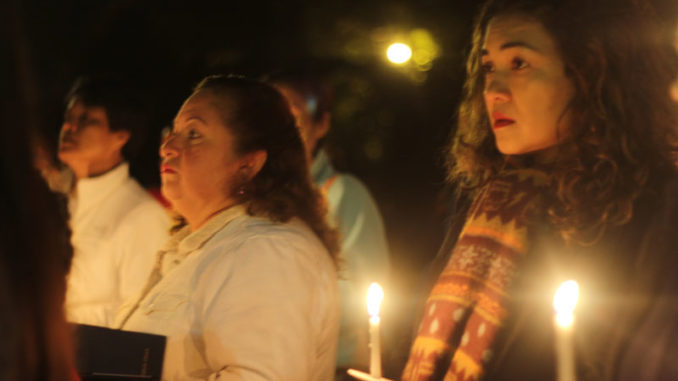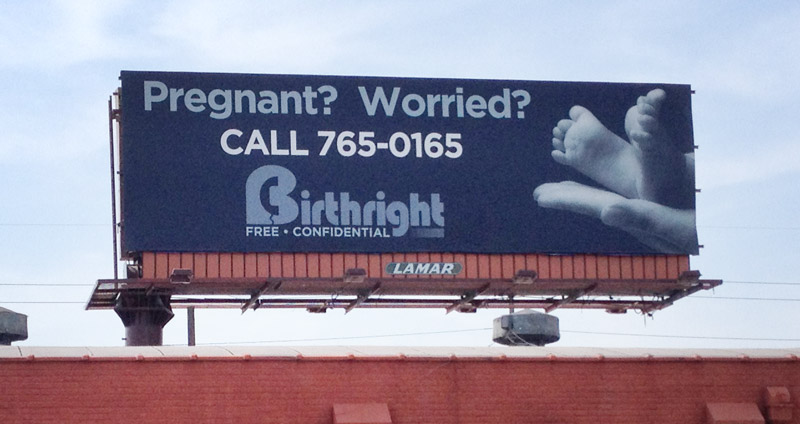
COLUMBIA—As the U.S. Supreme Court weighs the fate of Dreamers in America, advocates of the Deferred Action for Childhood Arrivals program have engaged in a steady litany of prayers.
In the Diocese of Charleston, hundreds of people gathered under the light of a full moon at Our Lady of the Hills Church to pray for the young immigrants whose futures hang in the balance.
The prayer vigil was held on the eve of oral arguments, which began Nov. 12.
DACA was established by President Barack Obama in 2012. It offers protections for undocumented immigrants under the age of 36 who do not have serious criminal records, saving them from deportation and allowing them to obtain work permits.
More than 700,000 undocumented young people have benefited from DACA. Known as “Dreamers,” they were brought to the United States as small children by undocumented family members. For most, the U.S. is the only country they have ever known.
In 2017, President Donald Trump’s administration announced plans to end the program. Multiple legal challenges to the order led to three DACA cases, which were consolidated and are now before the court.
Ending the program would lead to uncertain futures for DACA recipients, many of whom have families, own businesses, and work in a wide variety of fields.
The vigil in Columbia was organized by the South Carolina Catholic Conference and the diocesan Office of Hispanic Ministry, and drew about 250 people.
Many were members of Our Lady of the Hills and St. John of the Cross Church in Batesburg-Leesville, parishes that serve large Hispanic populations. Others drove from as far away as Rock Hill and Charleston to join the prayer effort.
Participants sang hymns in English and Spanish, prayed a bilingual rosary and heard the firsthand stories of DACA recipients from South Carolina.
Griselda Cervantes came to the United States with her family as a small child and grew up in Allendale, a town with high poverty rates and few opportunities for employment. Before DACA, she said her future looked bleak because of her undocumented status. She felt depressed and hopeless as she watched high school friends move on to college and careers while she was confined to restaurant work and other low-wage jobs.
She said becoming a DACA recipient allowed her to get a driver’s license and move to Columbia, where she found a job with better pay and benefits and has a strong support network as a member of Our Lady of the Hills.
“DACA has changed my life in so many ways,” Cervantes said.
Luis Balderas, a member of Immaculate Conception Church in Goose Creek, said his mother brought him to the Carolinas from Mexico in 2000, when he was only a toddler. He said the family used a “red dictionary from the dollar store” to learn English in the early years and he remembers how being undocumented meant a life of constant fear.
“You knew a simple trip to the grocery store could be the last time,” Balderas said.
He graduated 38th out of 800 in his senior class, but couldn’t pursue college because of his undocumented status and ended up working construction jobs.
“I fell into a deep depression because despite all the sacrifices my parents made, I wouldn’t be able to further my education,” he said. “Now, because of DACA, I’m able to go to school. I’m training to become a paramedic.”
Both Cervantes and Balderas said they, like all of the other DACA recipients who are waiting for the court’s decision, simply want to continue to live productive lives in the country they know and love.
For now, they will share their stories with as many people as possible, and continue to pray. A decision from the Supreme Court is not expected until June 2020.
Lea el artículo en español aquí: https://miscellany.wpengine.com/2019/11/14/cientos-de-simpatizantes-se-reunen-para-rezar-por-el-futuro-de-daca

















